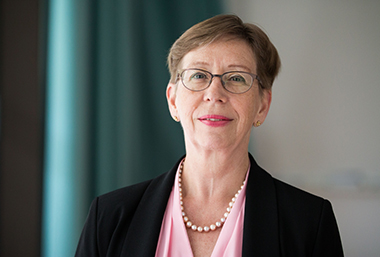In her daily work, Eva Tiensuu Jansson is a professor at the Department of Medical Sciences, Endocrine Oncology Group.
“It is exciting to sept into this new role. In my role as Dean of the Faculty of Medicine, I previously sat as a member of our local steering group, but now I get the opportunity to lead this group and collaborate with similar individuals at the three other host universities.”
The four host universities are Uppsala University, KTH Royal Institute of Technology, Stockholm University and Karolinska Institutet.
What exactly does an integration director for SciLifeLab UU do?
“All four of the host universities have an integration director. In Uppsala, I serve as chair of our local steering group and also collaborate with the other integration directors as well as the scientific directors on overarching issues for SciLifeLab.”
“I think the title is fitting, since the role relates to integrating the four host universities’ handling of SciLifeLab issues, both within and between the universities.”
There is also a scientific director for SciLifeLab-U and a director for SciLifeLab-U – but, according to Eva Tiensuu Jansson, the roles and responsibilities are clearly defined. The director has a more administrative role, while the scientific director works with operations-related development of SciLifeLab.
She believes she will devote a small proportion of her working time, perhaps 5 to 10 percent, to this assignment.
What work tasks will you tackle first?
“Right now, there is a discussion about what the next step is for SciLifeLab. We are waiting with bated breath for the research bill to see how we will continue to manage this important research infrastructure. We are also putting a lot of thought into how we in Uppsala will work with the new Data Driven Life Sciences initiative, which was announced a couple of weeks ago. SciLifeLab will play a major role in this, and we are preparing for the start in 2021.”
“To me, it is important that we continue to have good collaboration both within Uppsala University and with the Stockholm universities so that SciLifeLab can continue to be a strong national infrastructure in the future.”
